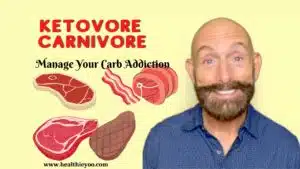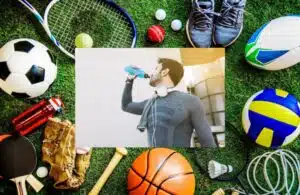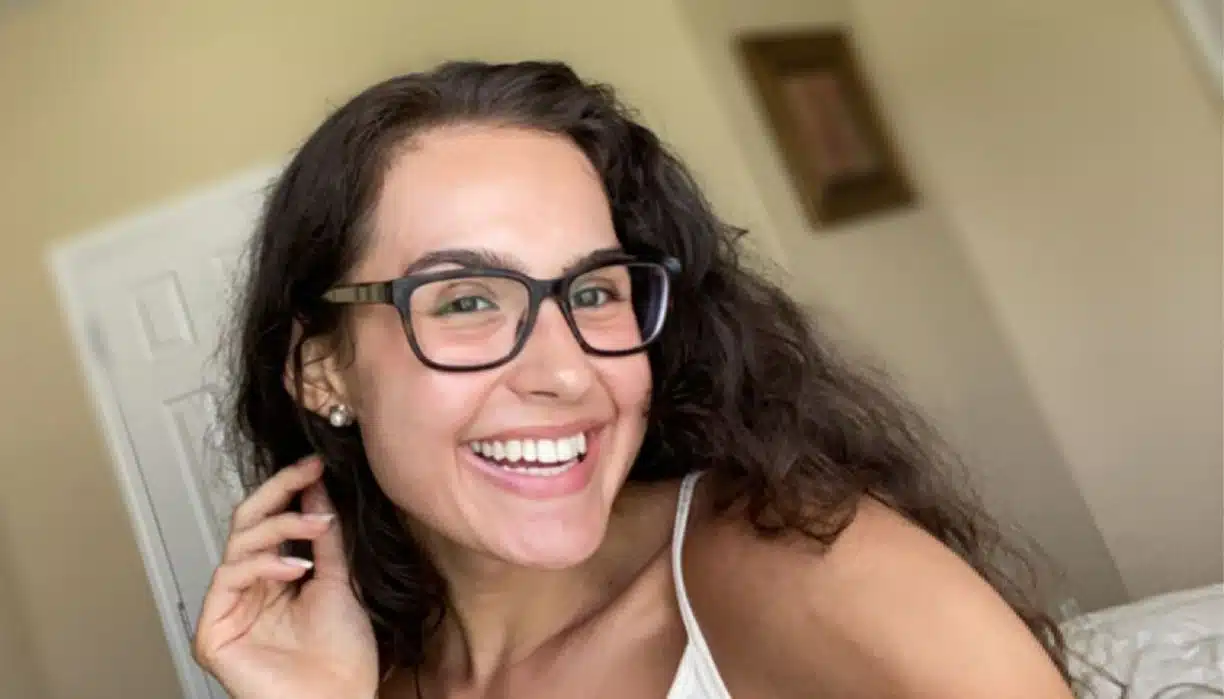We’ve all heard it before: we have to move more and eat less to lose weight. But how to lose weight without counting calories?
The problem is that many of us disregard or aren’t aware of the proportional contributions of those two factors: moving more and eating less. We tend to place an overwhelming emphasis on movement, but keep in mind that exercise constitutes about 20% of the equation whereas nutrition swallows the remaining 80%.
That being said, you can run on a treadmill for two hours a day and still not see the scale budge if you’re eating the same way you’ve been eating all along – except now you feel like you “deserved” those calories because you worked so hard in your workout.
Before I jump into the importance of a healthy diet and how to adopt habits that support that healthy diet, I want to mention one thing about exercise. As a certified personal trainer, I have many weight loss clients who have seemingly tried every diet and worn themselves out with cardio training. The key to boosting your metabolism to lose weight is developing lean muscle mass through resistance training.
Since the maintenance of muscle utilizes more calories compared to the maintenance of fat, the calories you ingest are used more efficiently. Yes, that means you’re able to eat more and not gain weight as rapidly or at all, depending on your caloric baseline for sustaining a certain weight.
If you don’t have much time to commit to exercise in the midst of your busy schedule, performing resistance training 2-3 times a week with optional equipment in the form of dumbbells, barbells, kettlebells, resistance bands, or just your body weight can still be beneficial if programmed correctly, preferably by a fitness professional.
In the battle between resistance training and cardio, trust and believe that resistance training will win every time. Especially if you have limited time on your hands, you can cut the intentional, hardcore cardio.
Now that we have that out of the way, let’s delve into the importance of nutrition. First of all, it’s not all about calories.
Yes, you do have to eat fewer calories than you burn to lose weight, but weight loss runs deeper than that.
So, how to lose weight without counting calories?
The goal isn’t to put you in starvation mode. Not only is that unsustainable, but you’ll likely gain all of the weight you lost. Plus more.
Not to mention, restriction slows down the metabolism because consistent low caloric intake that typically accompanies fad diets puts the body in a “fight or flight mode.” This activates what’s called the “sympathetic nervous system” in the body.
Characteristic features of the “fight or flight” response are increased heart rate and respiration, a surge of alert-signaling hormones, and decreased speed of digestion.
Since the body identifies scarcity and doesn’t have a mind of its own to predict when your next bite of food will be, it does what it can to preserve the low amount of calories that you do eat to maintain necessary bodily functions.
In other words, your metabolism slows down because it can’t afford to expend those necessary calories towards “less important” functions of supplying lean muscle, for example, especially if you don’t have much lean muscle to start with.
The first step here would be starting a resistance training regimen to build lean muscle so the calories you eat go towards their maintenance and development. Otherwise, those excess calories will be stored away as fat.
Next, let’s evaluate your current diet. I don’t want you to eliminate anything, but I do encourage you to make a list of the processed vs. the unprocessed foods you eat in a day.
Processed foods are typically packaged up and have undergone a number of changes from their original state as a plant that sprouted from the ground. This includes cookies, brownies, crackers, donuts, ice cream, bread, cereal, french fries, sausages, pasta, caramel… I think you get the idea.
Unprocessed foods include mainly the items you can find in the produce section of a grocery store, such as fruits and vegetables.
There’s nothing wrong with processed foods since many of those foods, such as bread, have to undergo some form of processing to be edible, but we have to pay attention to the potentially harmful additives that are included in that sequence.
When foods undergo processing, they tend to be stripped of essential nutrients and loaded with sugar and/or salt to enhance the taste and make those sweet/salty treats so irresistible.
Thus, the caloric content of relatively small portions of these foods is quite high, and, let’s be honest, one serving of three Oreos is not satisfying. That’s one of the quickest ways to overeat and, before we know it, one “snack” has the caloric equivalent of a full meal.
Unprocessed or minimally processed foods follow a slower digestive process within the body compared to highly processed foods, keeping us fuller for longer. It’s a lot harder to overeat apples, carrots, and oranges than those Oreos.
I’m a big proponent of the 80/20 rule where you eat whole or minimally processed foods 80% of the time and allow yourself to indulge in the occasional sweet treat 20% of the time.
That 20% is just as important as the 80% because it helps establish a healthy relationship with food.
When it comes to the question of how to lose weight without counting calories, I would say that food is not the enemy and it’s meant to be enjoyed, not restricted or eliminated.
Some foods, however, are just better suited for moderate consumption based on their nutritional content.
Take a look at that processed vs. unprocessed list you created. I challenge you to see where you can add at least one unprocessed food to your diet. Whether that be cheffing up a fruit salad with your lunch or munching on some apple slices while at your office, it’s all fair game.
Such additions will likely make you feel more satiated despite eating fewer calories, decrease your inclination to snack throughout the day, increase energy and productivity, and prompt better decision-making with meals, exercise, and sleep.
If the thought of counting calories stresses you out, making simple adjustments/additions to your diet like this is an easy way to avoid that cycle. It can be useful, however, to log the food you eat throughout the day or even plan out your meals for the day/week. This can help you be more conscious of your eating habits.
Since we can get so busy throughout the day and get accustomed to a specific lifestyle, we may not pay attention to what or how much we’re eating until the breakdown is placed right before our eyes.
You’ll be able to see where you can make those “unprocessed” additions within your eating schedule as well.
The most important thing to remember is that habits aren’t built overnight. You may be able to stick with drastic nutritional/lifestyle changes for the short term, but it’s unlikely that they’ll serve you in the long term, especially if they promote restrictive behaviors.
So, now you know how to lose weight without counting calories. Start small: smaller than you think you need to. Those “minuscule” efforts add up to the formation of an enhanced lifestyle where you begin to make health-conscious choices more readily.
If you’re looking for professional guidance with your fitness and nutrition ventures, I would love to be of service to you.
My specialty lies in helping my clients with body composition goals, which includes a practical step-by-step habit integration system – part of which I shared with you today – that helps them obtain long-lasting results: results that become part of a lifestyle. Connect with me here at https://linktr.ee/julia.nadolski or schedule a free consultation at https://calendly.com/julianadolski02 if you feel inclined to take your fit life to the next level!
And do not forget to subscribe to Healthieyoo!

Julia Nadolski
Related Posts

Ketogenic Nutrition – Dirty Keto OR Whole Foods Keto – Go Keto Wisely!
Dirty Keto or Whole Foods Keto? What foods to eat on keto? A practical insight into ketogenic nutrition. Go keto wisely! “What can I eat?”

Switching to a Plant-based diet: A Key to Unlock Healthier and Longer life!
What are the benefits of switching to a plant-based diet? Why are athletes switching to a plant-based diet? What is a strict vegetarian diet? What

Ketovore – Eat Well So You Can Feel and Look Well!
What is ketovore? What is a carnivore? The carb addiction teacher explains the difference between ketovore and carnivore and why it is important to be

Healthy Aging Month 2022: You Are The “Driver” Of Your Health And Wellness
Healthy Aging Month 2022! September is designated as Healthy Aging Month! Let us celebrate healthy aging month 2022 and imbibe some real healthy aging

Sports Nutrition – Nutrients Matter, Not Calories
Sports nutrition and its importance Sports nutrition refers to nutritional strategies specifically implemented to promote an athlete’s performance. This can help the athlete prepare

Why you shouldn’t count calories during holidays/vacations
Holidays/ Vacations! Finally! After such a long lockdown, we really should enjoy this time. But are you counting calories during vacation? Stop counting calories! Many

